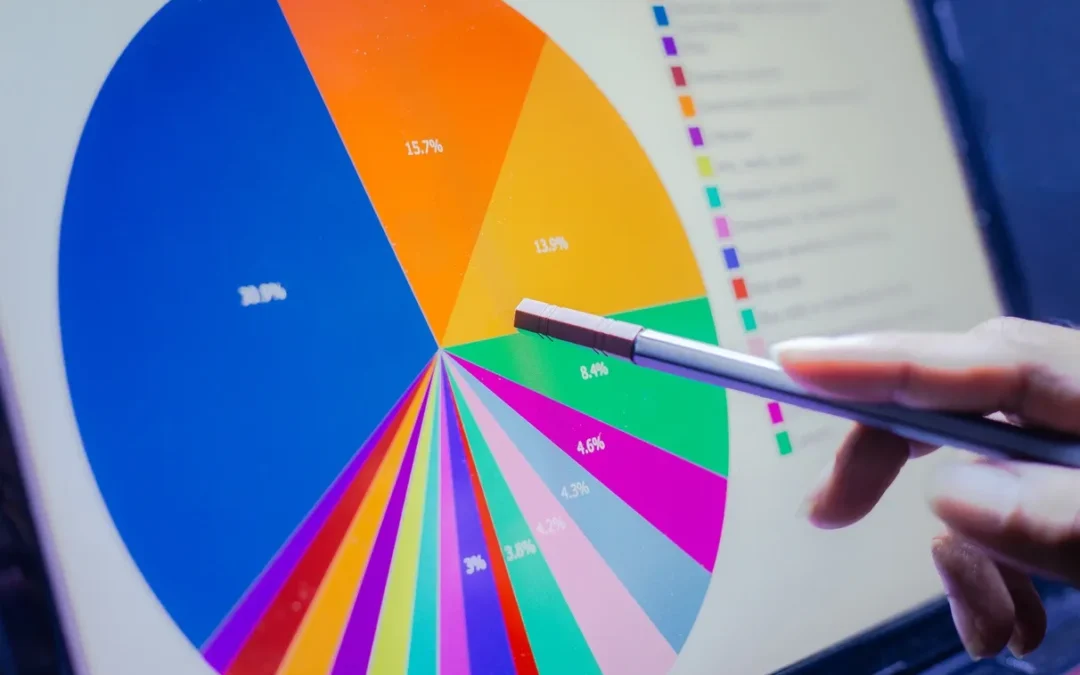For years we have heard that we must have data to make decisions. We are told “You get what you measure”. The amount of data being collected today is greater than ever. Leaders and managers have all the data they could ever need to run their teams, departments, and organizations. And yet, we do not see a great transformation in management. What is going on?
Data says nothing. Mere facts are as mute as stones. Just as the geologist must pick up and examine those stones he finds, data must be reviewed, studied, and processed into information. Information is processed data that has meaning and is presented in a context. The number of clients seen in January was down, that is what the data show. What it means, however, takes context, and more than the numbers spit out by the computer. It could mean staff were not as productive as needed. Maybe the flu swept through the office. Maybe the weather decreased client turn out. In short, only looking at the staff productivity, and taking nothing else into account does not provide enough information to make decisions.
Information, however, is still not enough to act. Data can be put into context, it can be assimilated into information. In fact, businesses have data analysists to do just that. Dashboards abound, and leadership teams look at the numbers and discuss them. Leadership passes the information on to managers and everyone agrees on what needs to happen. Then the expected change does not occur. Part of what I think is going on, is that information alone is not enough to effect change. Humans do not make changes based on information.
There is a lot of information out there about the ways to act and behave that will lead to a successful life. Everyone has the information that smoking is bad for your health, that it is addictive, that smoking will kill you. Yet, people pick up smoking. We all have the information that eating less and exercising more will help us lose weight, yet up to 80% of us are not the weight we want to be (this writer included). What is going on? It is the difference between information and knowledge. Information is the organized data in your head. Facts and figures, things you can rattle off, or can find in a book or online. We like to think we use information to make our decisions, but quite often we do not. Knowledge is needed for action. When you know something, it is not in your head, but in your gut. And our gut is what we listen too in absence of perfect information.
In this light it is easier to see why people start smoking. Everyone has the general information, but they do not know the negative outcomes will happen to them. After all, not everyone who smokes dies of lung cancer, so the information about the future is imperfect. As such, it is not that hard to rationalize that “it won’t happen to me”. The knowledge is not there, despite the information being present. What they know is that their friends smoke, it looks “cool”, and it makes them feel good. So, they act on what they know.
Managers and employees often are given data and information by leadership. Without converting that information into knowledge, no true change can happen. Leadership may have knowledge (though this is by no means always or even mostly true), but if the people on the ground do not, they will not change. The front-line employees will act on their knowledge, and not the new information. The challenge for their managers is to convert that information into something that they can know. Knowledge allows action.
As to how to convert information into knowledge, it requires more than a didactic transmission of information. Knowledge is transmitted through interpersonal interactions and experience. Do you trust what you read on the internet, or what a close friend tells you? To transform information into knowledge, leaders and managers must have knowledge of their employees through trusting relationships. The “Boss” in the 21st Century must become the “Coach”, sharing information, and listening to the feedback, so that together, knowledge can be created in the managers and employees alike.
The gathering of data is critical. It must be analyzed and turned into information. American companies have mastered both across the turn of the century. Now as we move into the third decade of the new millennium, it is time to take that information, and work with each other to turn it into knowledge. Armed with knowledge, everyone can act.
Bryan G. Stephens is a former executive on a mission to transform the workplace. He is the founder and CEO of TalkForward, a consulting and training company, utilizing Bryan’s clinical and management expertise to develop managers and teams in a corporate environment. As a licensed therapist with strong understanding of developing human potential, he is dedicated to the development of Human Capital to meet the needs of leaders, managers, and employees in the 21st Century workplace.
Bryan has an Executive MBA from Kennesaw State University, Coles School of Business, and both a Master’s and Bachelor’s degree in Psychology.


Recent Comments